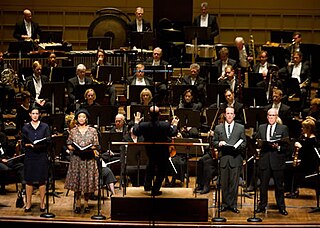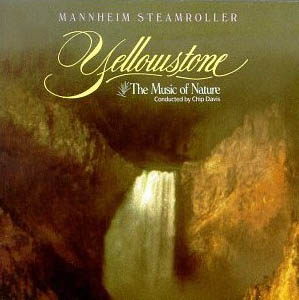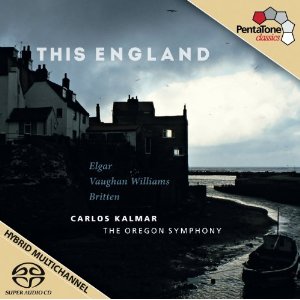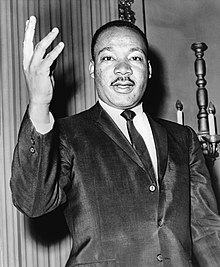
The Dallas Symphony Orchestra (DSO) is an American orchestra based in Dallas, Texas. Its principal performing venue is the Morton H. Meyerson Symphony Center in the Arts District of downtown Dallas.
John Harris Harbison is an American composer and academic.
Symphony No. 1 (Low) is a symphony by Philip Glass based on David Bowie's 1977 album Low.
Nicolas Oreste Flagello was an American composer and conductor of classical music. He was one of the last American composers to develop a distinctive mode of expression based wholly on the principles and techniques of late romanticism.
Joseph Clyde Schwantner is a Pulitzer Prize-winning American composer, educator and a member of the American Academy of Arts and Letters since 2002. He was awarded the 1970 Charles Ives Prize.

Gershwin's World is a thirty-seventh studio album by the American jazz pianist Herbie Hancock.

Yellowstone: The Music of Nature is an album by Mannheim Steamroller, released in 1989. The concept pays homage to nature and to Yellowstone National Park. It was nominated for a Grammy Award for Best New Age Album in 1991.

Behzad Ranjbaran is a Persian composer, known for his virtuosic concertos and colorful orchestral music. Ranjbaran's music draws from his cultural roots, incorporating Persian musical modes and rhythms.
John McLaughlin Williams is a Grammy award-winning American orchestral conductor and violinist.

The string section of an orchestra is composed of bowed instruments belonging to the violin family. It normally consists of first and second violins, violas, cellos, and double basses. It is the most numerous group in the standard orchestra. In discussions of the instrumentation of a musical work, the phrase "the strings" or "and strings" is used to indicate a string section as just defined. An orchestra consisting solely of a string section is called a string orchestra. Smaller string sections are sometimes used in jazz, pop, and rock music and in the pit orchestras of musical theatre.

World Sinfonía III – The Grande Passion is an album by jazz guitarist Al Di Meola that was released in 2000.

ClassiKhan is the tenth studio album by American singer Chaka Khan, featuring the London Symphony Orchestra. It was released by independent label Sanctuary Records on October 5, 2004 in United Kingdom, with international releases overseen by different record companies. Produced and arranged by Eve Nelson, ClassiKhan was mainly recorded at London's legendary Abbey Road Studios and features guest appearances by pianist Joe Sample and percussionist Sheila E., among others.

Svante Henryson is a composer, cellist, bass guitarist and double bassist, active within jazz, classical music, and hard rock.

Dedicated to the One I Love is an album of rock classics reinterpreted as children's lullabies by American singer, songwriter and producer Linda Ronstadt.

The Oregon Symphony, based in Portland, Oregon, was founded in 1896 as the Portland Symphony Society; it is the sixth oldest orchestra in the United States, and claims to be one of the largest arts organizations in the Pacific Northwest. The Symphony has released nineteen studio albums and one compilation album through the record labels Delos, Koch International Classics, Albany and PentaTone Classics. The first recording, Bravura (1987), was released under the artistic leadership of James DePreist. It received favorable reviews and was the first of three released through Delos. The next two recordings were collections of compositions by Sergei Rachmaninoff and Pyotr Ilyich Tchaikovsky.

This England is a classical music album by the Oregon Symphony under the artistic direction of Carlos Kalmar, released by Dutch record label PentaTone Classics in November 2012. The album was recorded at the Arlene Schnitzer Concert Hall in Portland, Oregon, at five performances in February and May 2012. It contains works by three English 20th-century composers: Edward Elgar's Cockaigne , Ralph Vaughan Williams' Symphony No. 5, and "Four Sea Interludes" and "Passacaglia" from Benjamin Britten's opera Peter Grimes. The recording was the orchestra's second under Kalmar's leadership, following Music for a Time of War (2011), which also included works by Britten and Vaughan Williams. This England received positive critical reception but failed to chart.

Tragic Lovers is a classical music album by the Oregon Symphony under the artistic direction of James DePreist, released by the record label Delos in 2008. It contains three works inspired by tragic love stories in literature: Richard Wagner's Prelude and "Liebestod" from Tristan and Isolde (1865), Hector Berlioz's "Love Scene" from Roméo et Juliette, Op. 17, and Pyotr Ilyich Tchaikovsky's Romeo and Juliet. Amelia Haygood and Carol Rosenberger served as executive producers of the album; the recording producers were Michael Fine and Adam Stern. The album's creation was financially supported by the Gretchen Brooks Recording Fund, which supported two recording sessions per year for each of DePreist's final five years as music director. Tragic Lovers was the orchestra's final recording with DePreist — who left the Oregon Symphony in April 2003 — as conductor and its final contribution to Delos's "Virtual Reality Recording" series.

Orchestral Works by Tomas Svoboda is a classical music album by the Oregon Symphony under the artistic direction of James DePreist, released by the record label Albany in 2003. The album was recorded at the Arlene Schnitzer Concert Hall in Portland, Oregon during three performances in January and June 2000. It contains three works by Tomáš Svoboda, a Czech-American composer who taught at Portland State University for more than 25 years: Overture of the Season, Op. 89; Concerto for Marimba and Orchestra, Op. 148; and Symphony No. 1, Op. 20. The album's executive producers were Peter Kermani, Susan Bush, and Mark B. Rulison; Blanton Alspaugh served as the recording producer.
Shadows, Op. 52, is an orchestral prelude by the Finnish composer Aulis Sallinen, who wrote the piece in 1982 on commission from the National Symphony Orchestra Association. The prelude's thematic material is closely related to Act III of Sallinen's third opera, The King Goes Forth to France, on which he also was at work in 1982, writing Shadows upon completion of Act II of the opera. Nevertheless, the composer has emphasized that Shadows is "an entirely independent orchestral work", albeit one whose "lyrical and dramatic ingredients reflect the philosophy of the opera". The National Symphony Orchestra (NSO) premiered the work on 30 November 1982 at the Kennedy Center in Washington, D.C., under the direction of its music director, Mstislav Rostropovich. Shadows so impressed Rostropovich and his orchestra that the NSO requested Sallinen compose a symphony for them, the result of which would be the Fifth (1985).
The Symphony No. 4, Op. 49, is an orchestral composition by the Finnish composer Aulis Sallinen, who wrote the piece from 1978–79 for a commission from the City of Turku, to celebrate its 750th anniversary. The Turku Philharmonic Orchestra premiered the work on 9 August 1979, under the direction of its principal conductor, Pertti Pekkanen.















